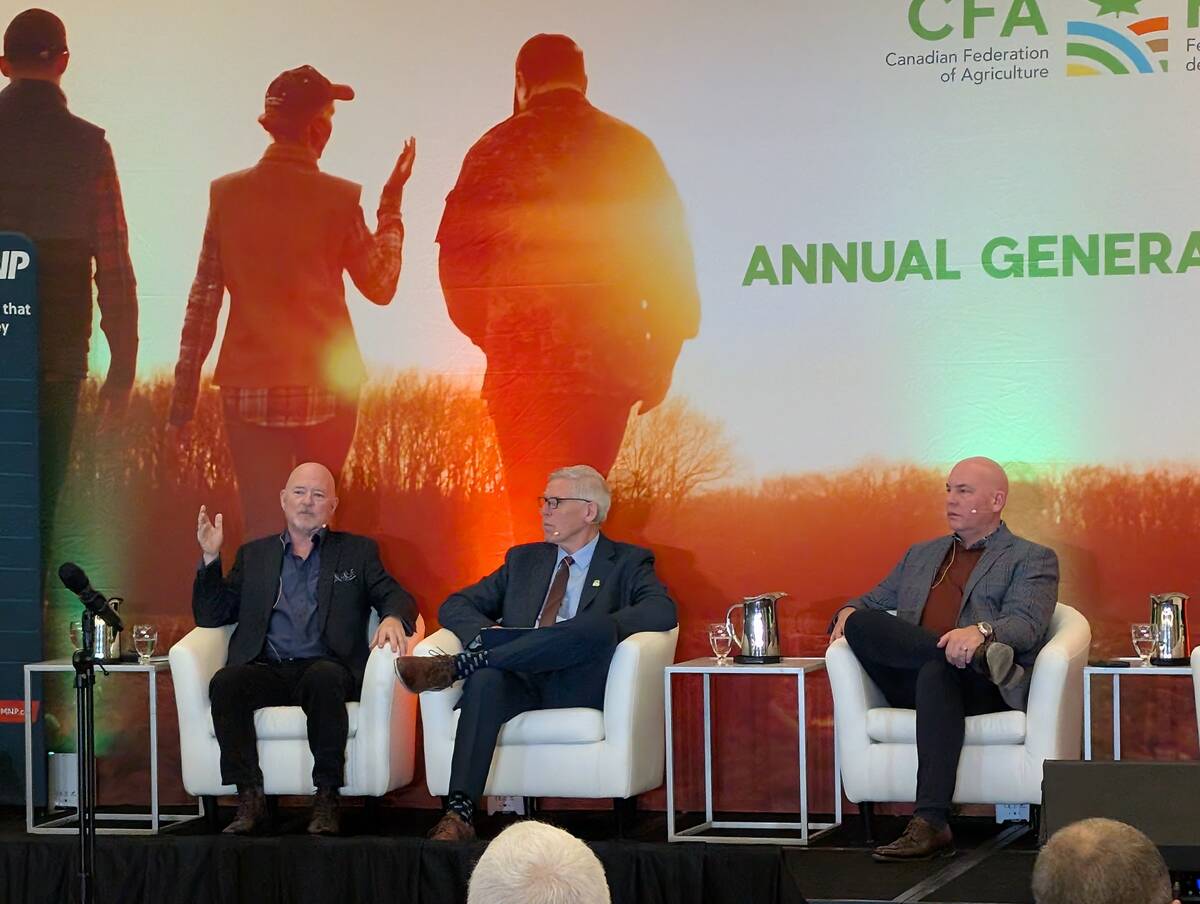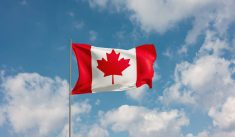Manitoba NDP premier Wab Kinew apparently isn’t afraid to borrow ideas, even from Brian Pallister, his one-time foe, former premier and once leader of the Progressive Conservatives.
Kinew argues that Manitoba deserves a better deal on the federal government’s carbon pricing scheme, based on how much Manitobans have invested in hydroelectric power. That investment, in turn, has cut Manitoba’s greenhouse gas emissions, Kinew says.
“When it comes to the carbon price, Manitoba has a very strong case that, that could be revisited in our province because of the investments we’ve made in the Manitoba Hydro grid over the years, because of the steps that have been taken,” Kinew told reporters Jan. 16.
Read Also

Unified ag front urged for Next Policy Framework
Panelists at the Canadian Federation of Agriculture (CFA) annual general meeting say agriculture groups must stay focused and united in consultations for the recently-announced next policy framework
Pallister made the same case a little more than six years ago, when he announced his party’s vision for climate policy: the Manitoba Climate and Green Plan — A Made-in-Manitoba Solution.
Without Manitoba Hydro’s investments, paid by Manitobans, the province’s emissions would be 42 megatonnes a year, double 2017’s levels, Pallister said that year, after the detailed and generally well-received plan was unveiled.
“Because Manitoba is already ‘clean’ with its hydroelectric power grid, it will require higher carbon prices to achieve equivalent emissions reductions compared to other provinces,” the PC’s plan stated. “That would mean higher and higher carbon prices for fewer and fewer relative emissions reductions. That makes no sense.”
Pallister’s plan to reduce emissions by 2.6 million tonnes by 2022 had merit. It included a price on carbon, but capped it well below what Ottawa deemed acceptable. It also branched into policies that would cut emissions by preserving wetlands and tackling big industry.
“I am concerned that it has taken a long time for governments around the world to get at this problem,” Pallister said. “I want us to have a plan that works over time.”
At the time, Pallister used up a lot of political capital defying party members and some voters who opposed any price on carbon, even though most economists argue it’s the most economic, efficient and market-driven approach. Some of the disaffected even went so far as to set up a new political party.
Pallister’s plan, however, had lots of backers, from the Keystone Agricultural Producers to Ducks Unlimited. Ian Mauro, former executive director of the University of Winnipeg’s Prairie Climate Centre, praised it.
“I think it’s really exciting the province of Manitoba is getting on board with serious climate action,” he said in an interview on Oct. 27, 2017. “I think the opportunity to have a Conservative-led government taking climate change seriously and signalling that they want to have action is very helpful.
“We could have (climate change) denial, but that is not what happened today. There was an acknowledgment that climate change is real. There was an acknowledgment that we need to do something about it … and all of that is very beneficial and very good.”
Indeed, Pallister often pointed to climate change as a fact.
“We are already feeling its impacts from flooding to extreme weather to melting ice roads,” he said when his plan was released. “Unabated, these impacts will grow. This is the consensus view of scientists around the globe. Taking action now is cheaper and better than waiting.”
Pallister also said most farmers agree, although some current social media posts make one wonder.
Alas, historically, the federal government gives no credit for past good deeds, whether that’s farmers adopting zero-till or hydro building more dams. It argues that strategy does nothing to reduce emissions further.
So there is no Manitoba-made price on carbon, and Ottawa’s will see an increase April 1. Meanwhile, on Jan. 1, Kinew’s new NDP government made good on its promise to cut the province’s 14-cent-a-litre tax on gasoline and diesel fuel, but only for six months.
And unlike Ottawa’s carbon price, most Manitobans will not get a rebate when the gas tax is restored in July.
“We’re going to continue to do the things that we can on our side provincially to help the average person, to help producers, and we will be working at other levels as well,” Kinew told reporters.
Given the similarities in stance, Kinew might want to dust off Pallister’s opus and revise a made-in-Manitoba approach.
















